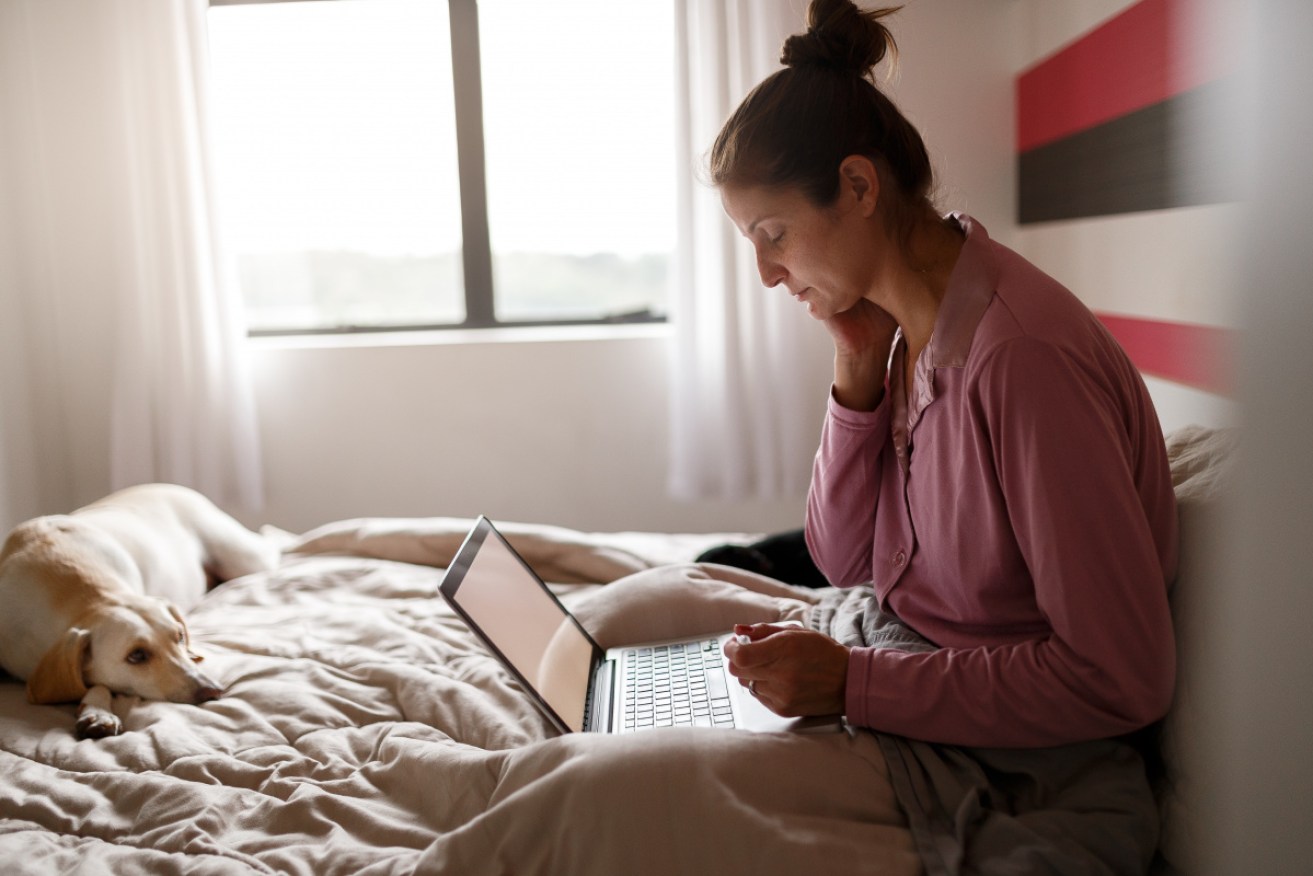Staying sane in the COVID-19 pandemic: Help isn’t far away


It's OK to ask for help if you're struggling. And help is just a screen away. Photo: Getty
My name is Cathy, and I see a psychologist. I’m a pretty regular person – I run my own business, I have an amazing long-term partner, a mortgage and great relationships with friends and family.
From the outside, it might seem as though I have my life together, and most of the time I am really happy. But sometimes I am not, and I need help to sort my stuff out.

Tempers can fray and resentment build in locked down isolation, plunging entire families into the darkness of depression. Photo: Getty
Once upon a time seeing a psychologist meant you were emotionally unstable (or borderline psychotic). The stigma still exists, but attitudes around mental health are changing, even more swiftly in the midst of the coronavirus pandemic.
Speaking to an outsider is a great way to work through your everyday dramas, as well as the big things that can cause upheaval in your life – spoiler, we all have these.
In my case, there’s been quite a few over the past 18 months. My beloved grandfather, Pa, passed away; there was some unusual family conflict that was intensely draining; my partner’s dad experienced a major health scare; my mum was diagnosed with breast cancer; we were renovating our house; and on top of all that we are trying to run a small freelance business. It was a lot.
Opening up to a stranger about your most personal thoughts, the feelings you think aren’t justified, or the stuff you are embarrassed about can be tough. You’re probably used to mulling over your work worries, friendship dramas or relationship niggles with those closest to you over buckets of shiraz.
But a stranger is often your best bet. They don’t carry historical baggage about you — they consider everything objectively and, in my experience, very helpfully.
They also relieve the burden from others who can’t always be on call. My partner is an amazing listener and problem-solver but, with family health concerns of her own, she sometimes has limited bandwidth to troubleshoot my stuff too.
I have had two psychologists over the past 10 years. I sought out the first – let’s call him Jordan – when I was trying to work through issues around my sexuality. He specialised in queer relationships and it felt comforting to me to speak with someone who understood my community and empathised with my experience.

Drinking too much as the pressures of the coronavirus crisis bears down? Well, help is available. Photo: Getty
My current dude, let’s call him Brad, is more of a generalist. We talk about the relationships I have with people in my life, my core values and beliefs which shape my opinions (and judgements) and he’s given me techniques to deal with it all. Importantly, he’s also offered a place for me to simply vent.
A psychologist doesn’t tell you what to do. You don’t go to them with a problem and say ‘fix it’. I like to call what they do ‘unpacking’. It’s as though I have a suitcase bursting at the seams with emotional energy and I feel as though I can’t touch the buckle without its contents spewing out. It feels messy.
They help you to open it all up, sort through the stuff that can go straight back in the wardrobe and offer strategies to help you clean up the rest and to feel less stressed about the whole process.
As the world becomes an increasingly unpredictable and terrifying place, our place within it is constantly shifting. It’s normal to feel unsettled at the best of times, and right now taking care of our mental health has never been more important.

The road to better mental health starts with your GP. Photo: Getty
Brad and I chatted this week via video conferencing. We have a great rapport so it wasn’t weird not being in the same room. We had a great discussion and I feel a lot more equipped to be dealing with the horror show happening outside my door, but also confident about managing my general life stuff which hasn’t been switched off by COVID-19.
The introduction of Telehealth services by the Morrison government means that you can access bulk-billed sessions with your GP and a psychologist via phone or video link.
The first step is to speak with your GP and get a Mental Health Care Plan. This is a conversation with your doctor about your stress levels, any anxiety you may have and why a psychologist may help.
The Plan allows you 10 discounted sessions per year which, under new bulk-billing offerings, means it will be free. If you don’t have a plan, there is a small Medicare gap fee of between $30 and $60.
We all need to look after each other right now, but we also need to look after ourselves. And there is zero shame in asking for help.








